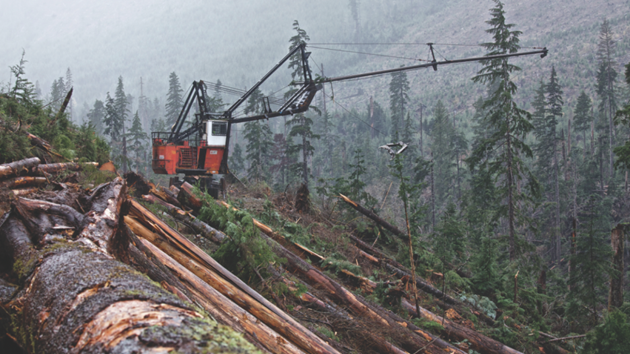Former B.C. premier Dan Miller has been appointed facilitator to help resolve a long-standing disagreement between the forest companies that own cutting rights and the loggers who actually do the cutting.
The former NDP premier has been brought in to help implement the recommendations of a review that was conducted by the NDP government to settle disputes between forestry companies who own the tenures and the logging contractors who harvest the trees on a contract basis.
About 90 per cent of the logging done in B.C. is done by independent contractors. For years, they have complained that forestry companies, which are making record profits, have not been paying them enough.
As a consequence, investment in the equipment needed to harvest in ever-more challenging terrain has fallen off, and many logging companies have simply gone out of business.
In May, the government came up with 13 recommendations aimed at making the independent logging sector more viable and sustainable. The recommendations include establishing a new minimum standardized rate. One other recommendation would require contracts to identify specific blocks that are to be harvested.
Miller has been tasked with working with the logging contractors and the forestry companies to implement those recommendations.
Logging contractors say the rates that forestry companies pay don’t account for the massive capital investments these independent logging companies have to make. For example, contractors must have water trucks and other firefighting equipment on site when harvesting a cutblock.
“It’s not just that you’re hiring somebody – you’re hiring multi-million dollars worth of equipment,” said David Elstone, executive director of the Truck Loggers Association, which represents roughly 500 contractors.
With all of the low-hanging fruit in B.C. pretty much harvested, loggers in B.C. are being forced into more and more challenging terrain, like steep slopes, which requires specialized equipment and logging techniques. Logging contractors can't make the necessary capital investments in that kind of equipment if the rates they are paid does not reflect those investments.
Elstone is hopeful that Miller will be able to come up with a consensus between loggers and forestry companies and get the recommendations made earlier this year implemented.
– Nelson Bennett, Business in Vancouver


